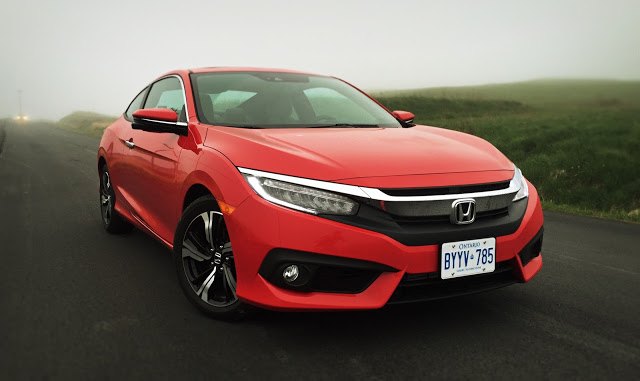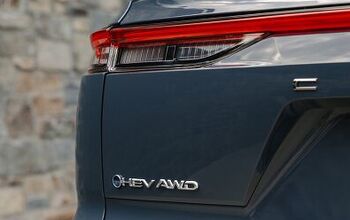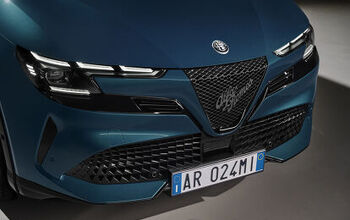So A Trump Win Means You're Moving To Canada? Here's What You Need To Know, Automotively
Threatening to move isn’t new.
16 years ago, legions of American citizens promised to leave the United States if Republican George W. Bush beat Democrat Al Gore. While there’s evidence that suggests emigration from the United States to Canada occurred at an accelerated rate during Bush’s two terms in the White House, it was more likely tied to the state of the economy overall than differences in personal politics.
But that didn’t stop Americans — not just celebrities, but Americans en masse — from shutting down Citizen And Immigration Canada’s website with excessive traffic on the night of 2016’s Trump electoral victory earlier this week.
Had the website operated normally, you would have discovered that moving to Canada isn’t easy. Yet your desire to relocate will not be sated by a move to sunny SoCal or the Florida Keys. You’re determined to live in Cape Breton, or Portage la Prairie, or Trois-Rivières. And in the automotive sphere, there are some things you really need to know.
You may be less prepared to swallow the absurd freight/delivery/destination fees automakers charge in Canada. Take, for instance, Canada’s best-selling car, the Canadian-built Honda Civic. American Honda charges $835 for destination and handling. Honda Canada demands $1,595. (A $100 federal air conditioner fee is often included in destination charges.) Even accounting for the currency conundrum, that’s still USD $1,184, a 42-percent increase compared with American Honda’s fee.
It can be a lot worse. The Mercedes-Benz E300 4Matic I tested a couple of weeks ago was allegedly a $61,200 car, but with destination included, the base price shot up to $63,895.
TAXES
Alberta, which collects the federal government’s 5-percent goods and services tax but has no provincial sales tax of its own, is the least-heavily-taxed new car environment.
STEELIES
Even on expensive cars, and often from October to April, Canadians love to throw a nice set alloys with Michelin Pilots into the back of the shed and fit a set of downsized, poverty-spec, steelies with Bridgestone Blizzaks instead.
Sitting in traffic with the sun rising at 8:45, the seat heaters on full blast, and the cars around you clouded by exhaust in -20°C weather, all of these steel wheels have an effect on your psyche. It’s like living on a street with nice homes where nobody mows the lawn; like sitting in your high-priced lawyer’s fancy office only to see his filthy keyboard.
Or maybe it’s just the timing. We alloy loyalists think it’s the steelies that get us down. But then again, the steel wheel onslaught is linked to the cold, the darkness, the scraping of windshields, and the snowplow once again clogging your driveway just after you’ve cleared it a second time.
Today, pickup trucks account for 15.2 percent of the market; Americans are buying 220,000 per month.
Moving to Canada? Prepare to see new pickup trucks forming a measurably larger portion of the new vehicle market. Canadians are buying more pickup trucks than ever. 19.1 percent of the Canadian auto industry’s sales are now produced by pickups, up from 15.8 percent in 2006.
Canadians are also far more likely to choose a minivan as their next family hauler. Nearly 5 percent of Canadian auto buyers opt for a minivan, compared with little more than 3 percent in the U.S.
Also, more Kia Rondos, Mazda 5s, Nissan Micras, and Toyota Venzas. Americans can’t buy those vehicles at all, but they account for 1 out of every 100 new vehicles sold in Canada. But besides the specific vehicles that distinguish the two markets, there are broader themes.
Consider the whole Mazda brand as a prime example. Though Mazda Canada’s market share is consistently declining, the brand still owns 3.5 percent of the Canadian market, more than double its U.S. share. Credit the Mazda 3, which, while struggling of late in Canada, is still the country’s fourth-best-selling car. ( It ranks 20th in the U.S.)
Volkswagen almost doubles its U.S. share in Canada. Hyundai’s hold on the Canadian market is 64-percent stronger than it is in the U.S.
Chevrolet, on the other hand, owns just 7.5 percent of the Canadian market, way down from the Bowtie brand’s 11.8-percent share in the U.S.
FUEL
The U.S. average fuel cost hasn’t topped $3.00/gallon in the last two years and currently sits at $2.19/gallon.
In Canada, our average per gallon cost jumped to USD $4.55/gallon as recently as the spring of last year and now sits just below USD $4.00/gallon.
Sure y’all are ready for this?
Timothy Cain is the founder of GoodCarBadCar.net, which obsesses over the free and frequent publication of U.S. and Canadian auto sales figures. Follow on Twitter @goodcarbadcar and on Facebook.
[Image: Gage Skidmore/Flickr ( CC BY-SA 2.0)]
More by Timothy Cain
Latest Car Reviews
Read moreLatest Product Reviews
Read moreRecent Comments
- Kjhkjlhkjhkljh kljhjkhjklhkjh *Why would anyone buy this* when the 2025 RamCharger is right around the corner, *faster* with vastly *better mpg* and stupid amounts of torque using a proven engine layout and motivation drive in use since 1920.
- Kjhkjlhkjhkljh kljhjkhjklhkjh I hate this soooooooo much. but the 2025 RAMCHARGER is the CORRECT bridge for people to go electric. I hate dodge (thanks for making me buy 2 replacement 46RH's) .. but the ramcharger's electric drive layout is *vastly* superior to a full electric car in dense populous areas where charging is difficult and where moron luddite science hating trumpers sabotage charges or block them.If Toyota had a tundra in the same config i'd plop 75k cash down today and burn my pos chevy in the dealer parking lot
- Kjhkjlhkjhkljh kljhjkhjklhkjh I own my house 100% paid for at age 52. the answer is still NO.-28k (realistically) would take 8 years to offset my gas truck even with its constant repair bills (thanks chevy)-Still takes too long to charge UNTIL solidsate batteries are a thing and 80% in 15 minutes becomes a reality (for ME anyways, i get others are willing to wait)For the rest of the market, especially people in dense cityscape, apartments dens rentals it just isnt feasible yet IMO.
- ToolGuy I do like the fuel economy of a 6-cylinder engine. 😉
- Carson D I'd go with the RAV4. It will last forever, and someone will pay you for it if you ever lose your survival instincts.





































Comments
Join the conversation
The OPP won't bother you on the 400 series hi ways , as long as you stay under 130 kph.
I haven't been to Canada since the 70s, when we were in Detroit and my dad wanted to run us over to Windsor just to say we had done it... I was however, in Riviera Maya Mexico this past week and met a bunch of Canadians who were escaping the cold weather. My personal observation is that they French-speaking women tend to be a hell of a lot better looking than the others. I have no interest in moving north, and while I enjoyed our week in the sun at an all-inclusive guzzling Johnny Walker Red and club soda all week, I couldn't wait to get out of Mexico...lots of abject poverty once you leave the resort, and a sea of weird little cars. I did get to ride in several minivans I'd never seen before..a Ford Transit of some sort and a VW Transport, both diesels with 6 sp manuals.